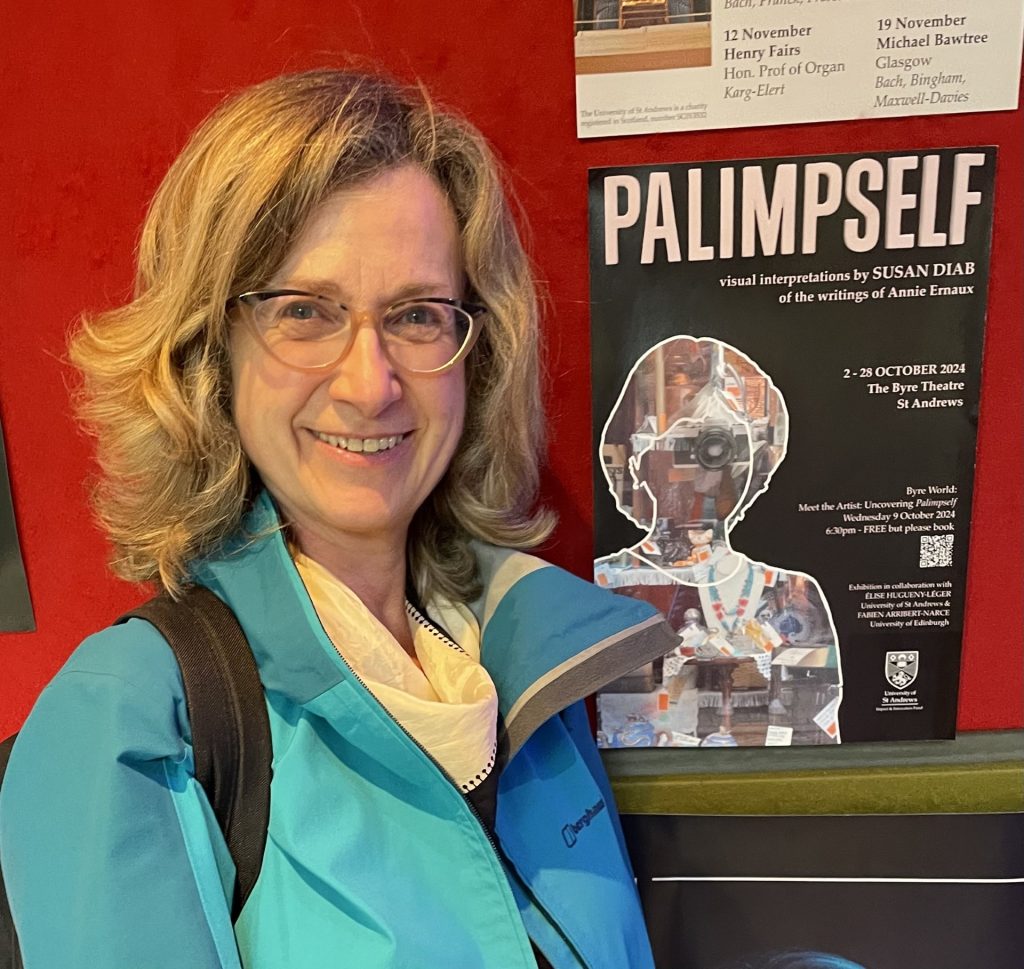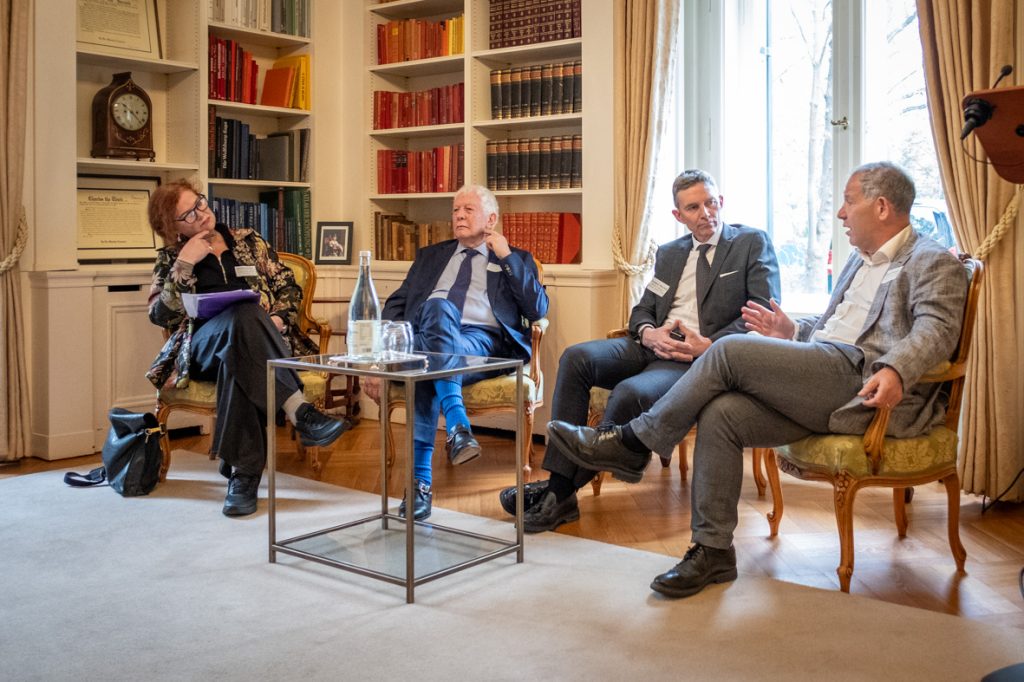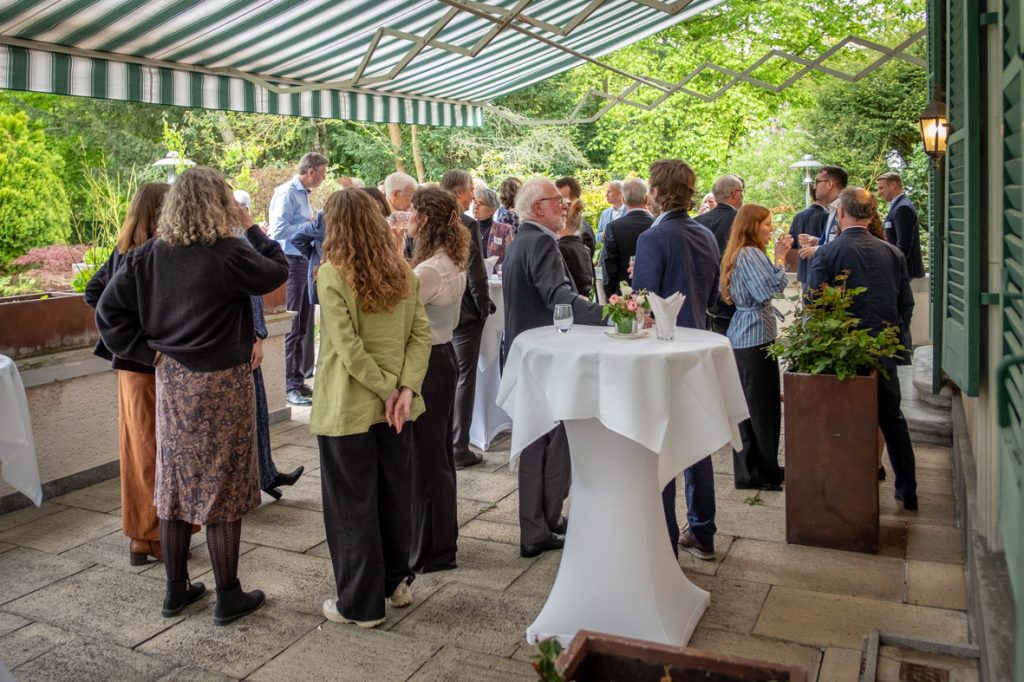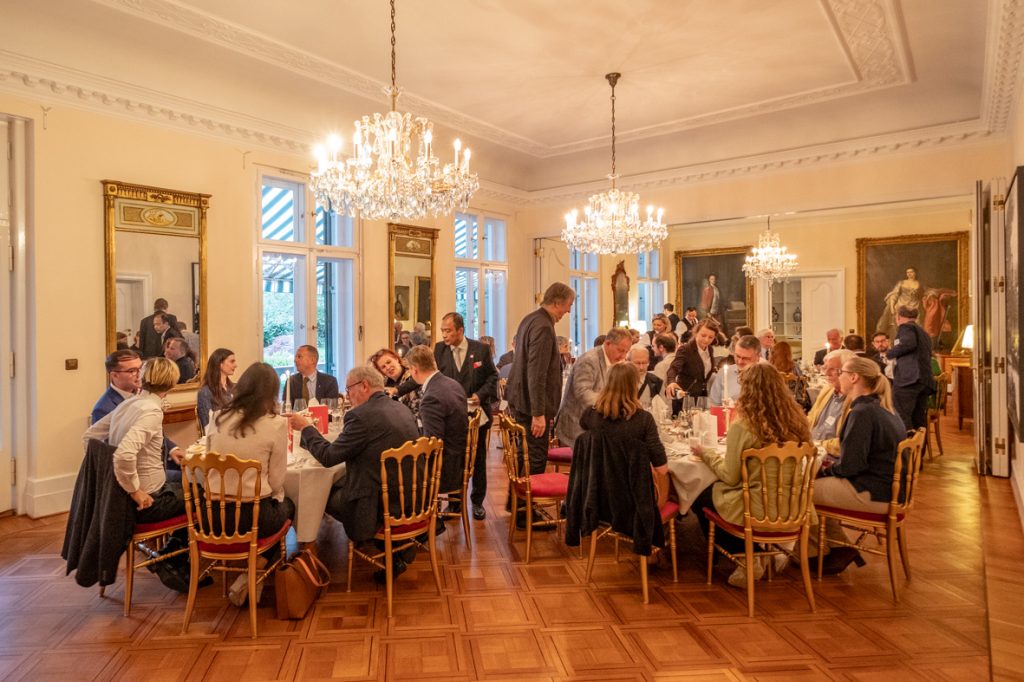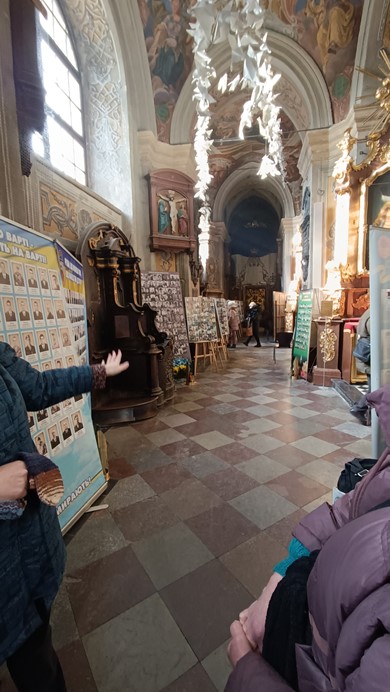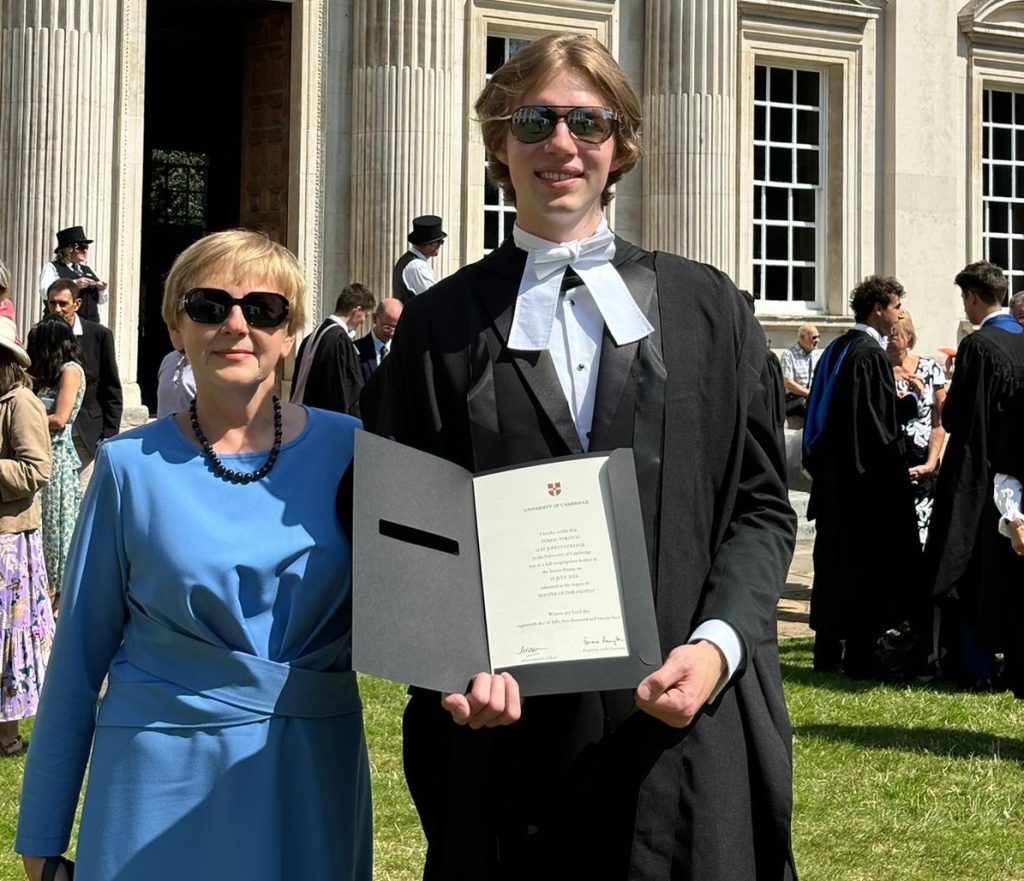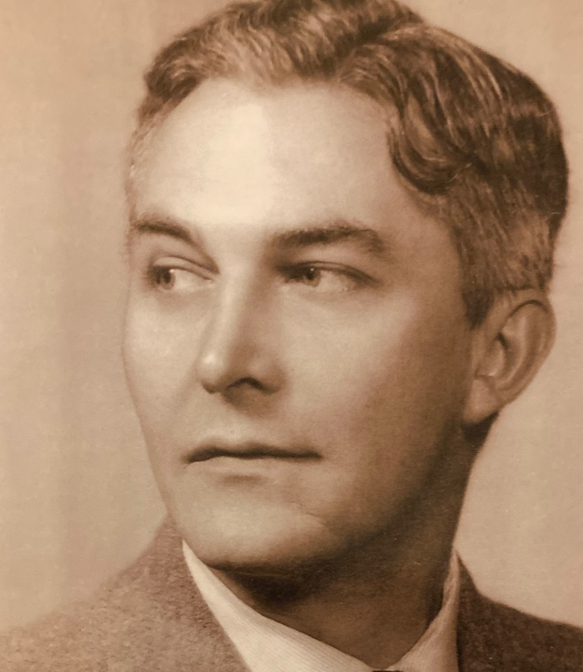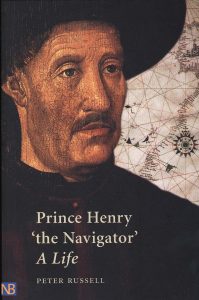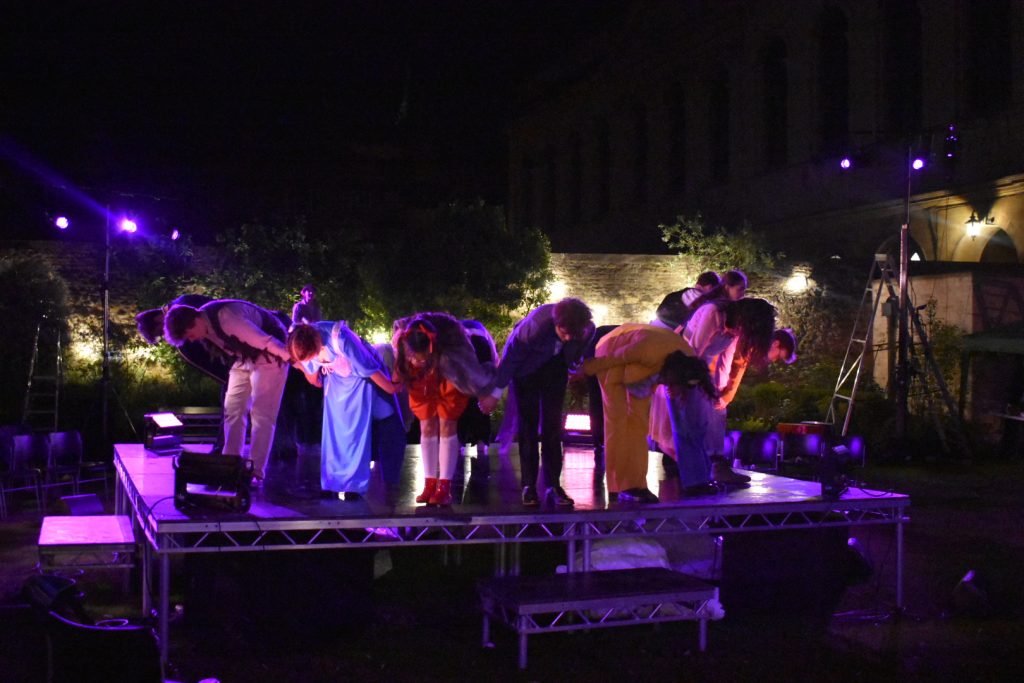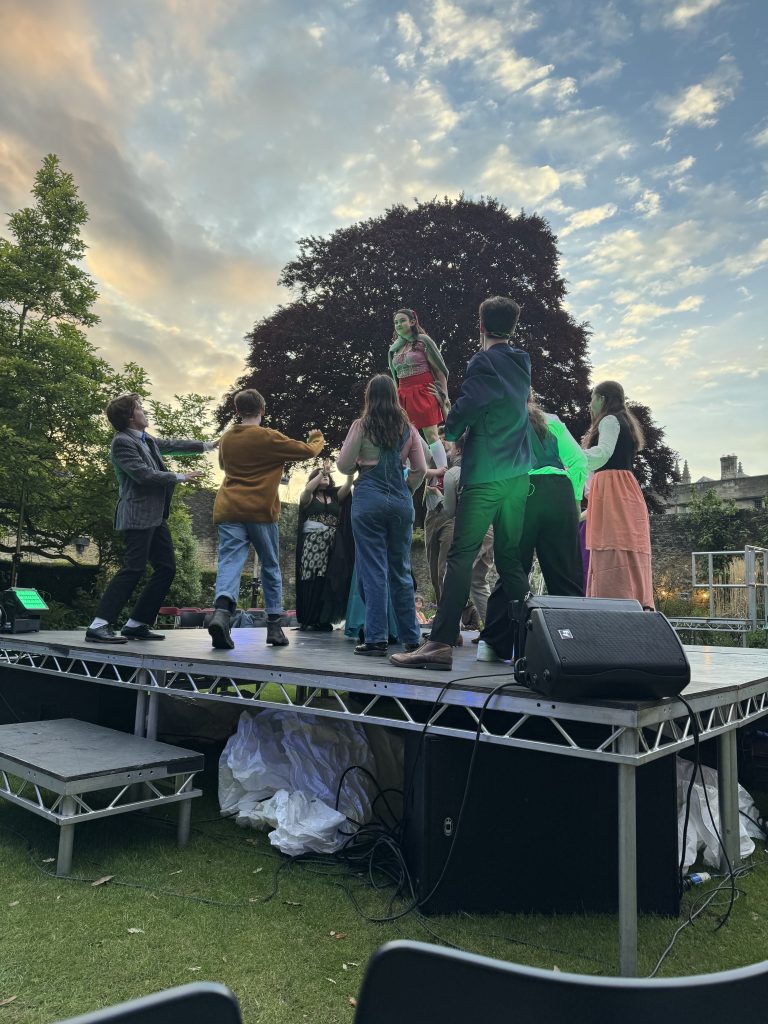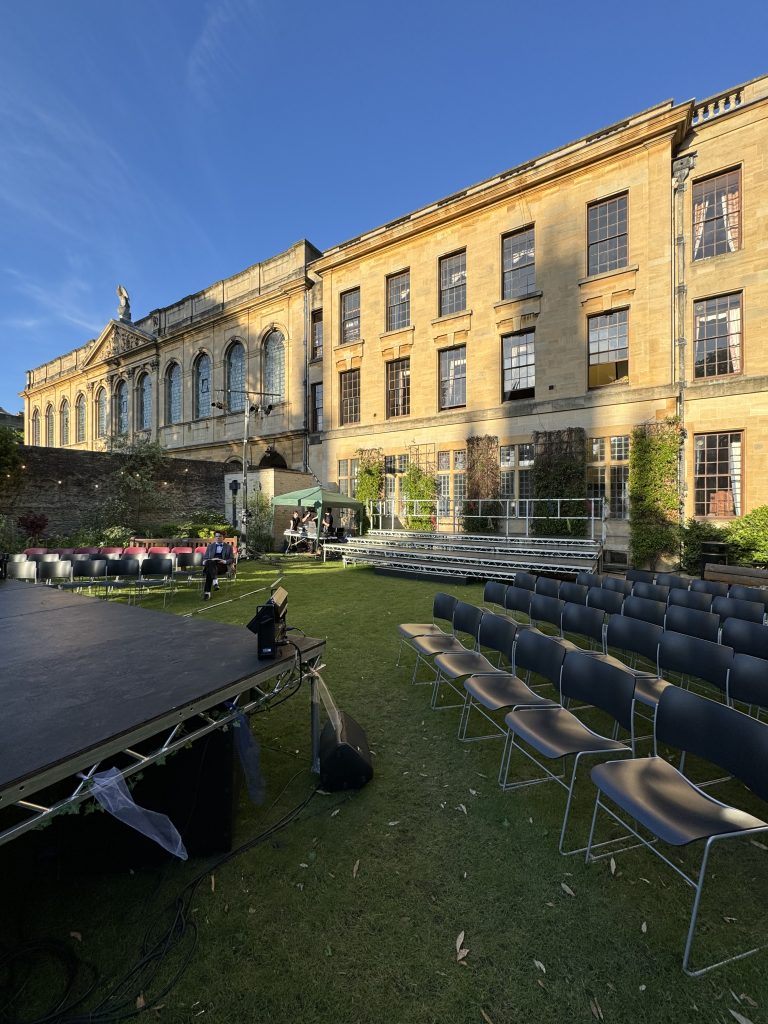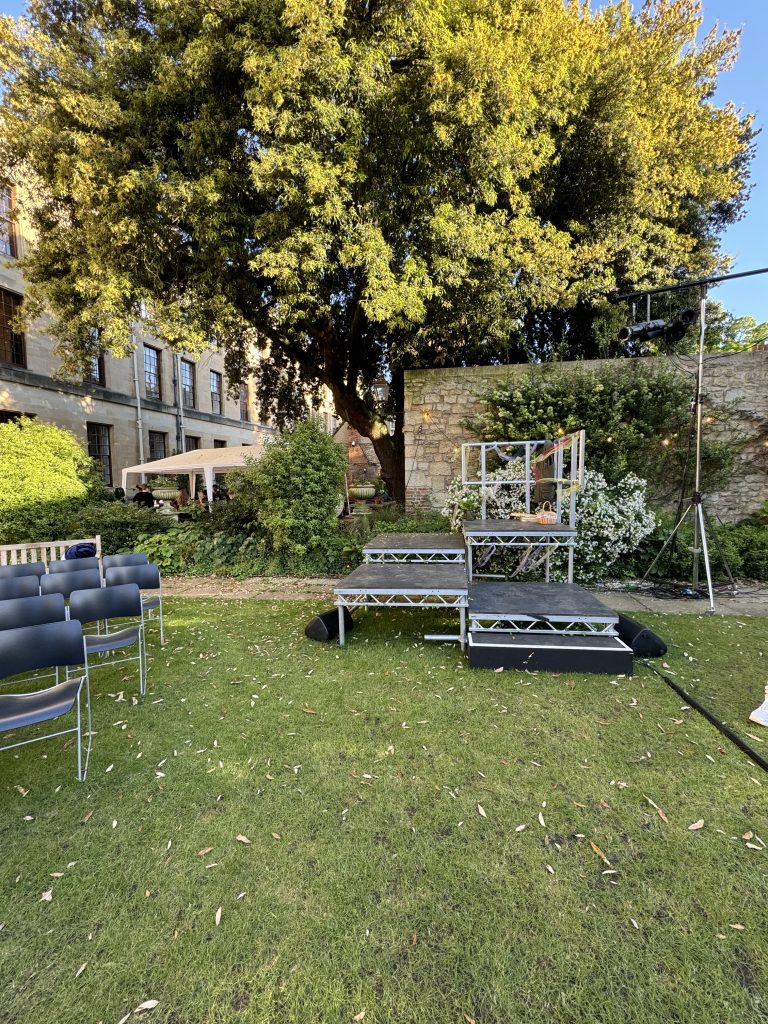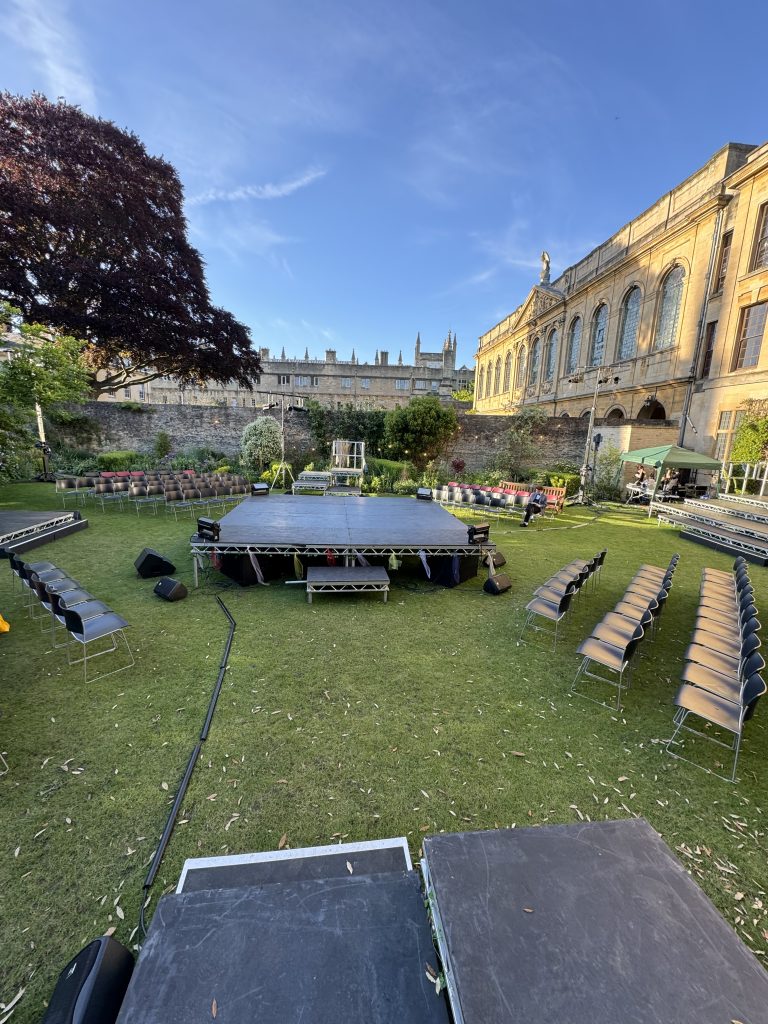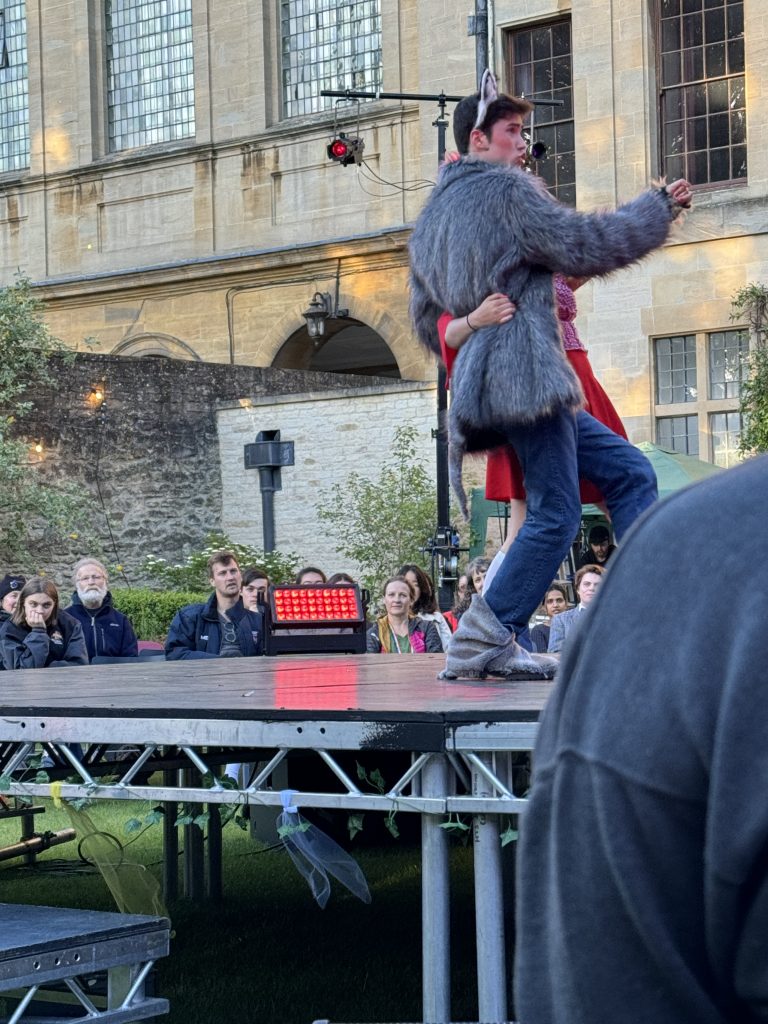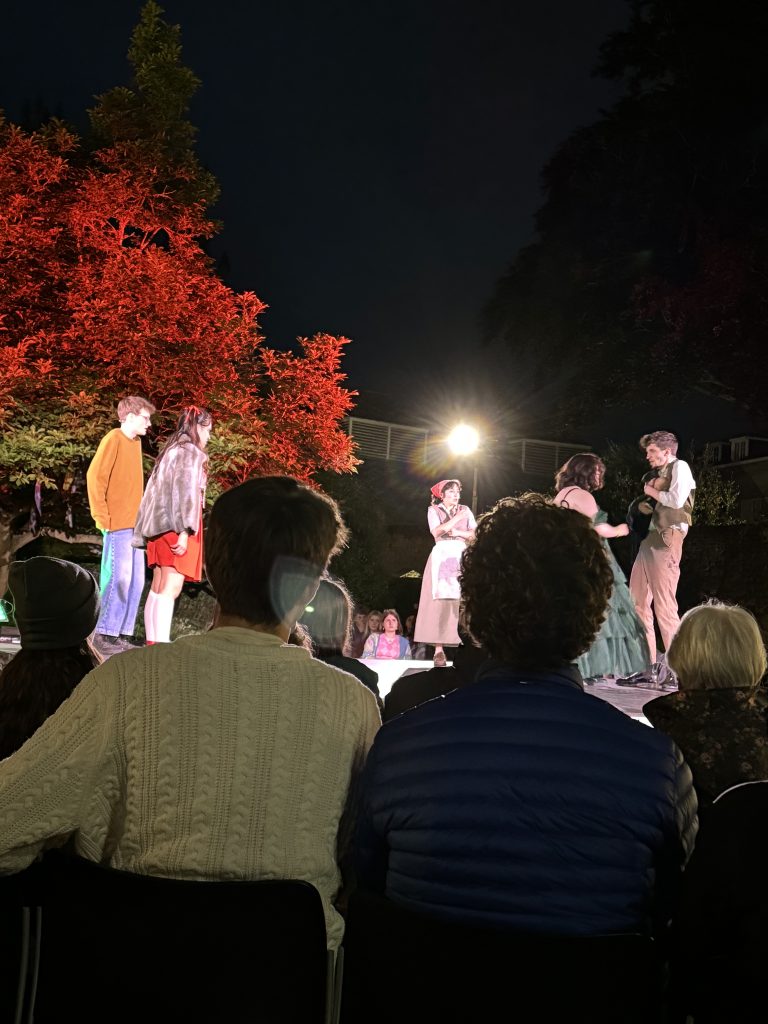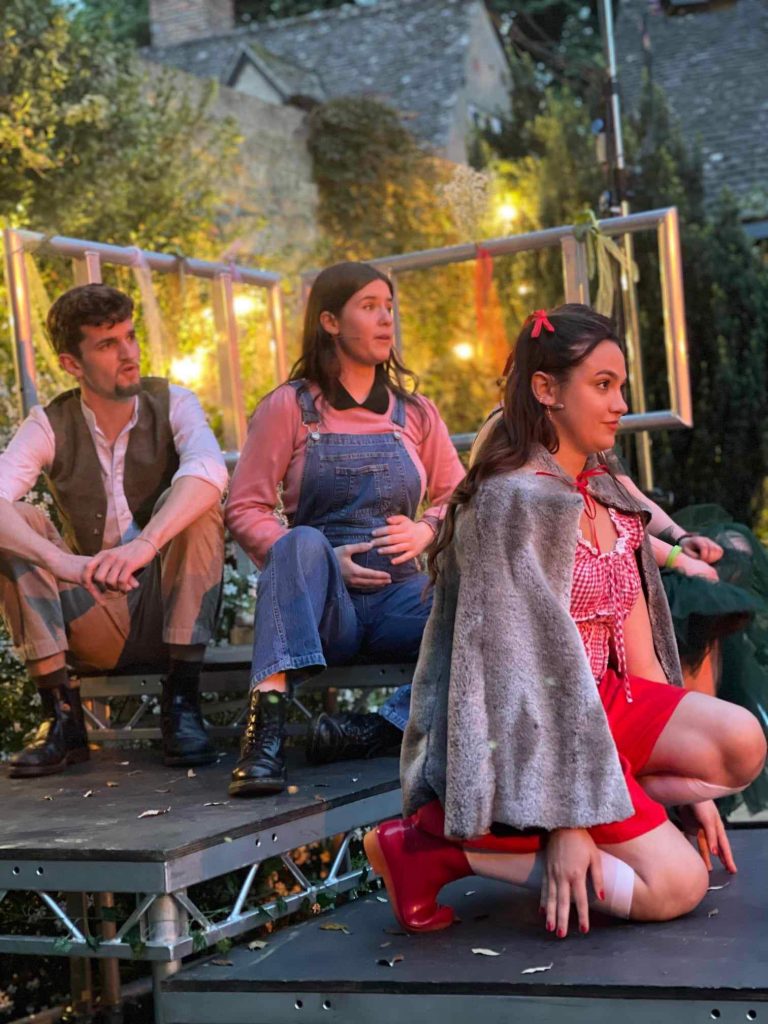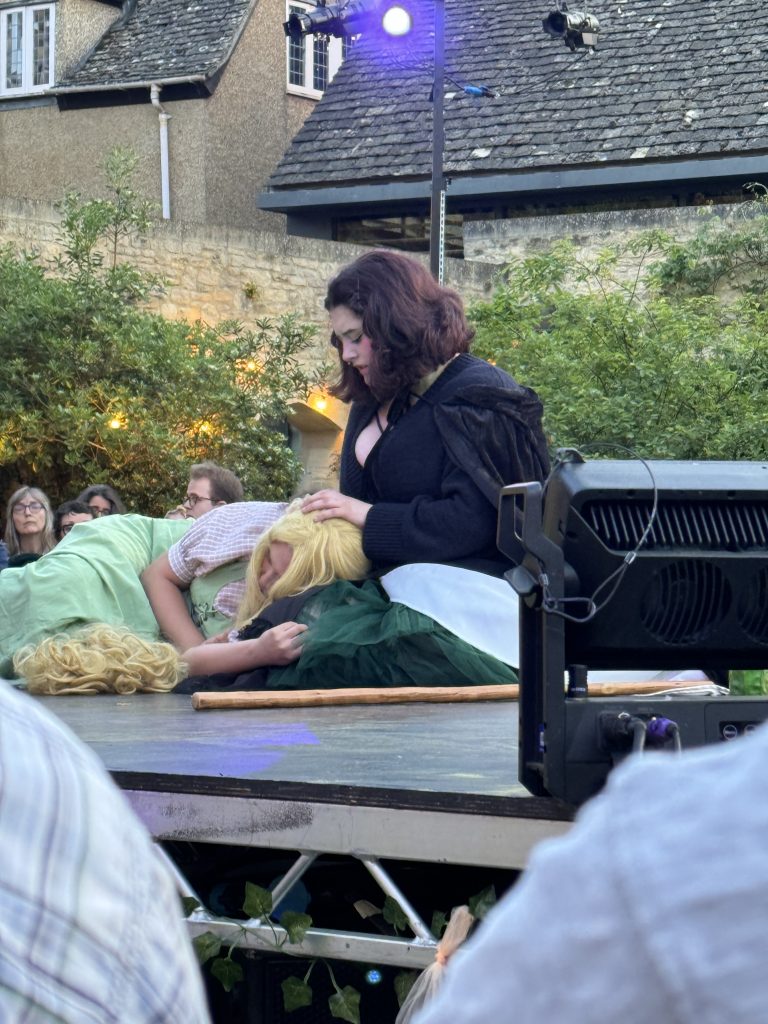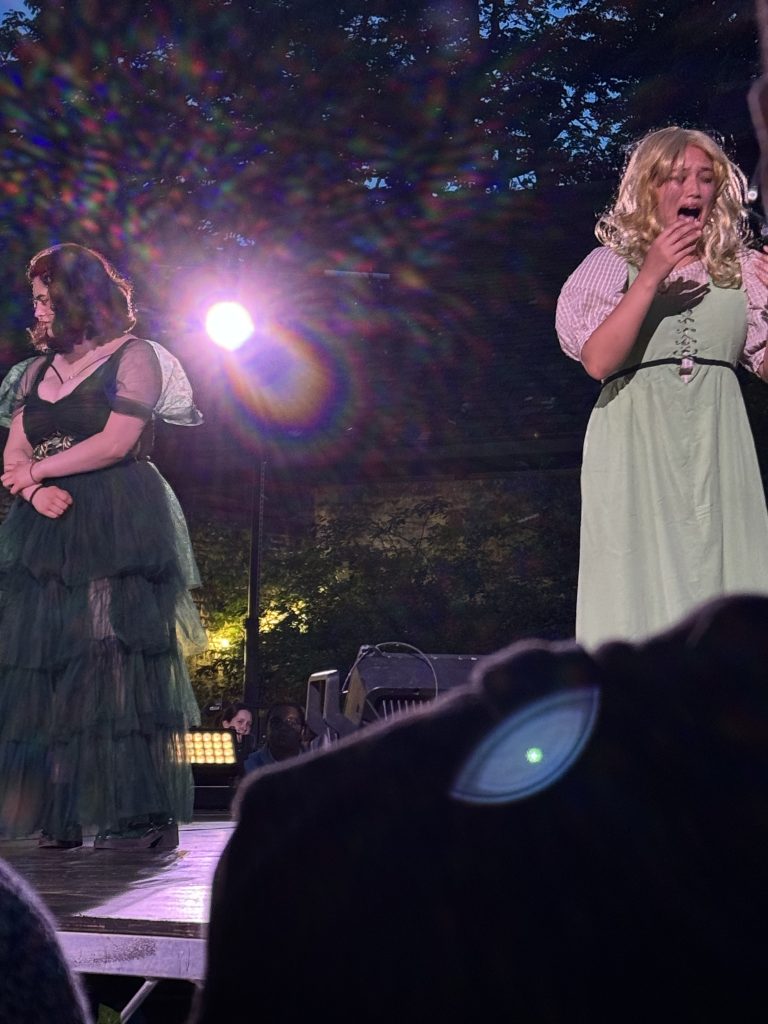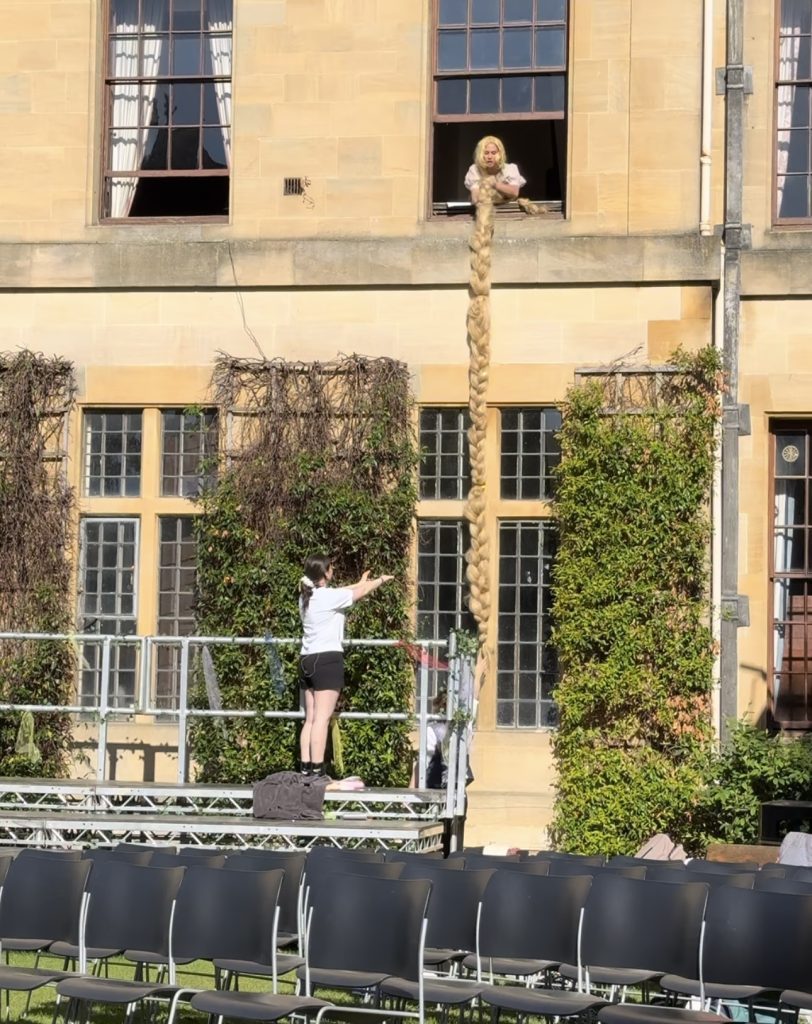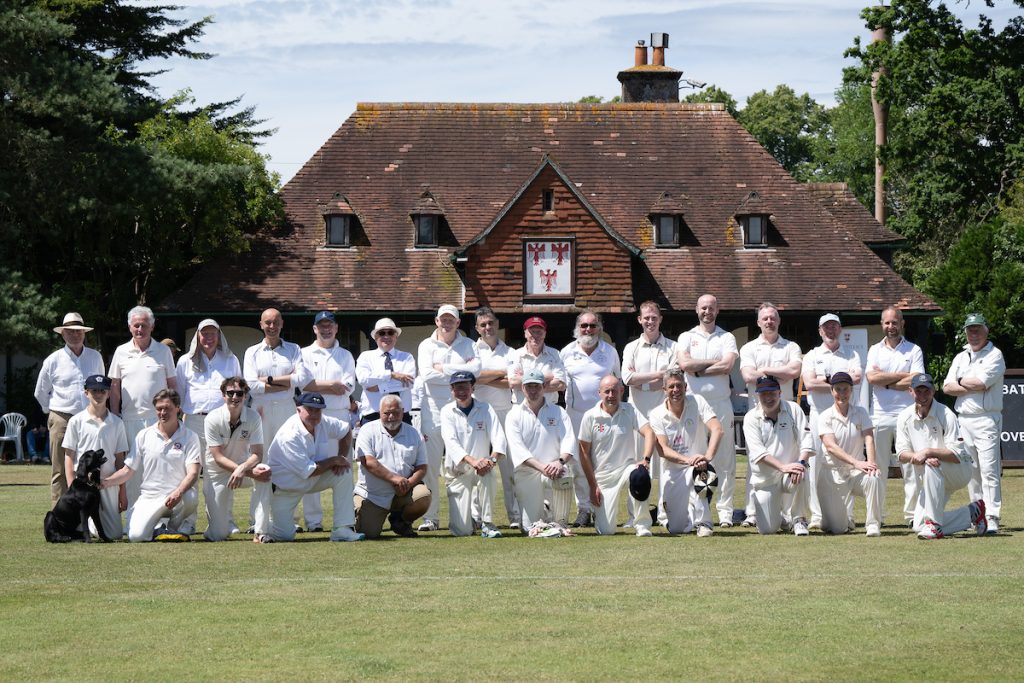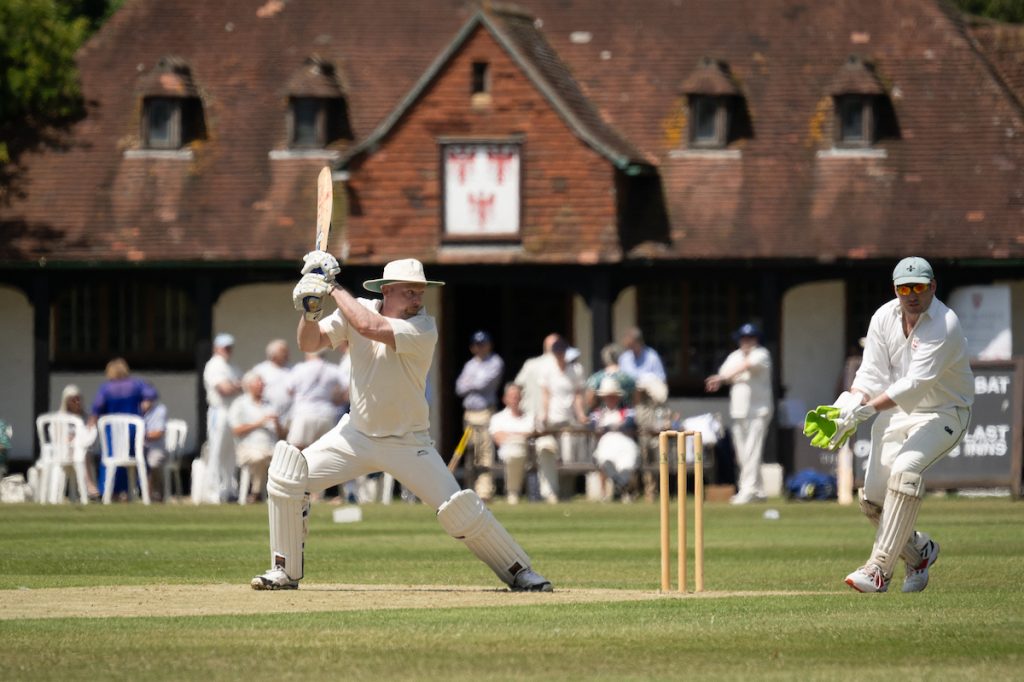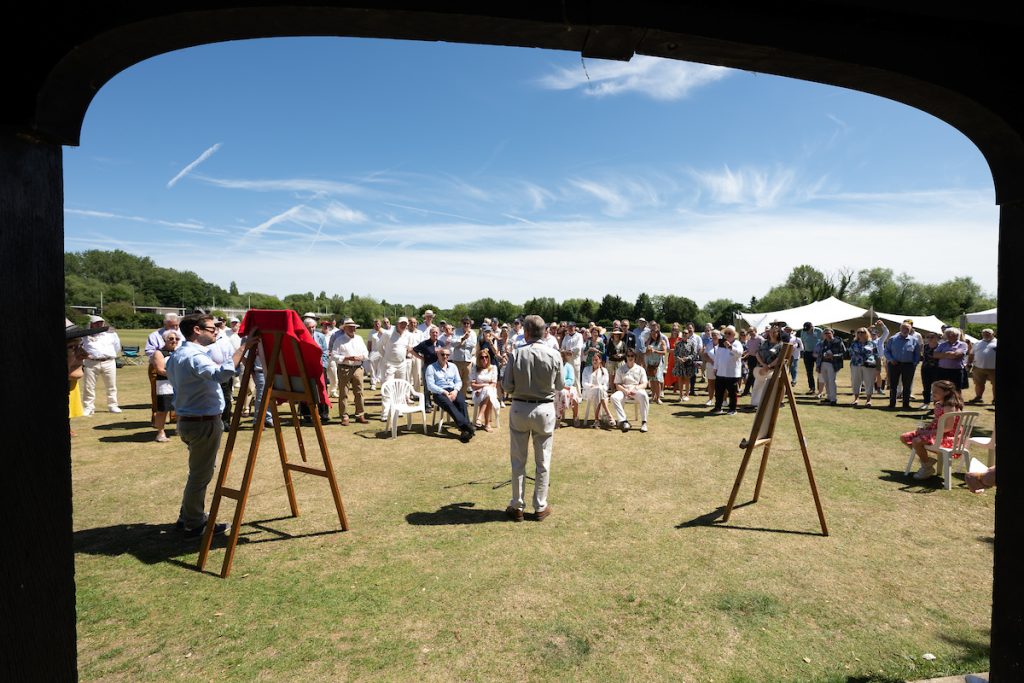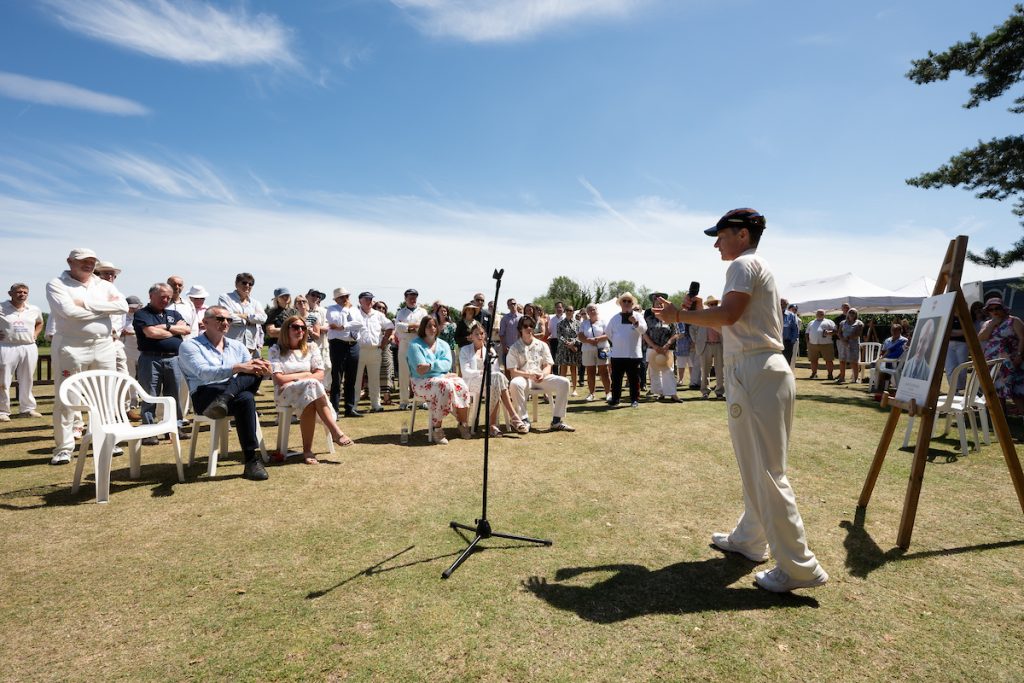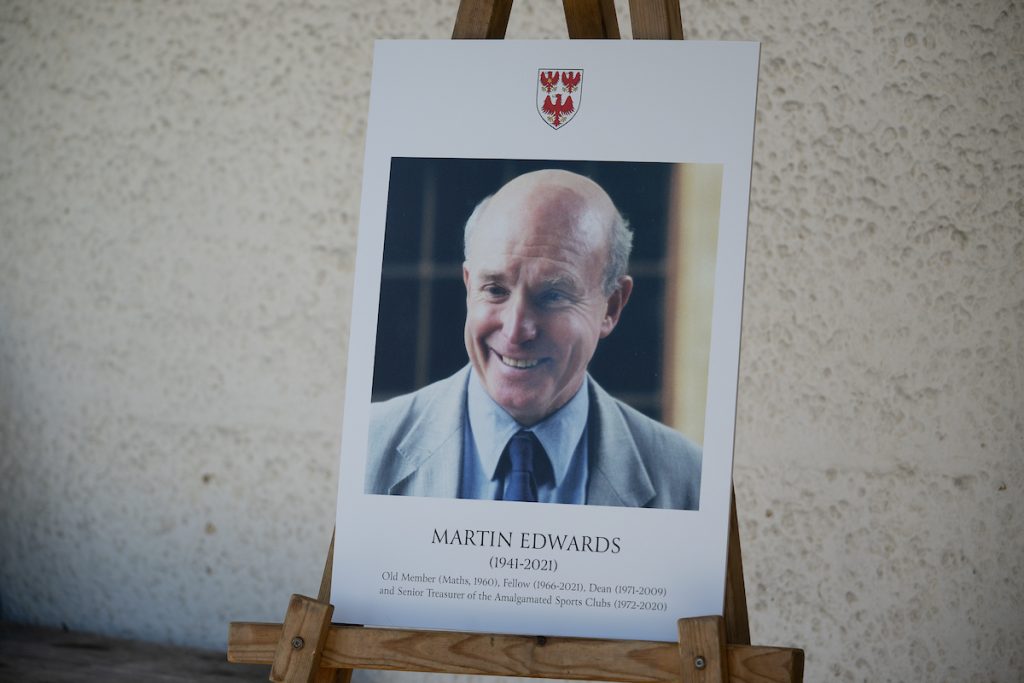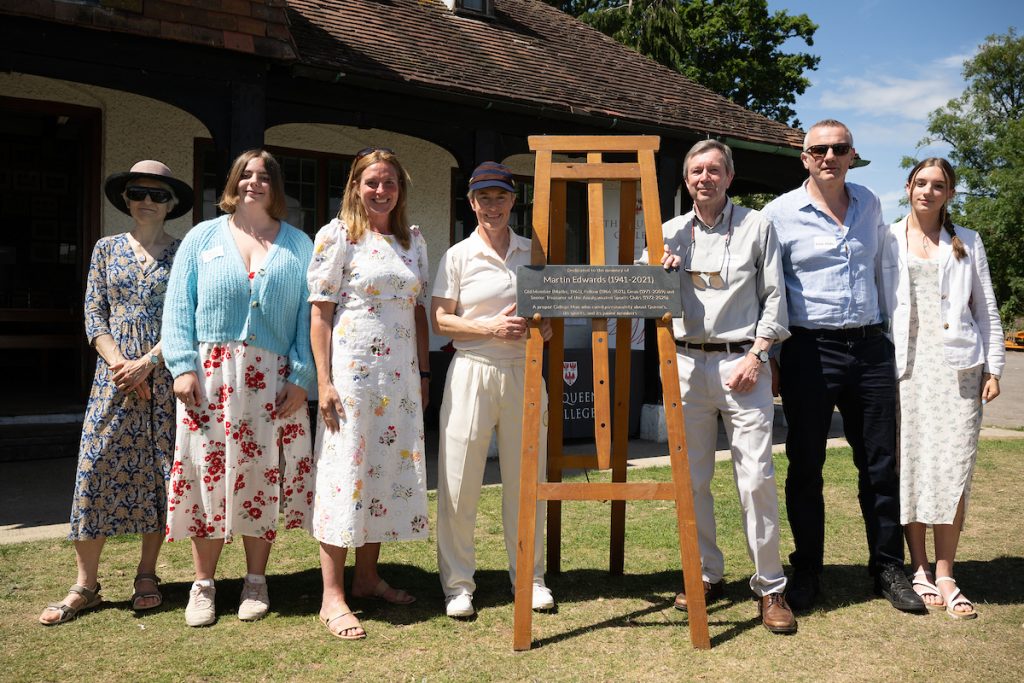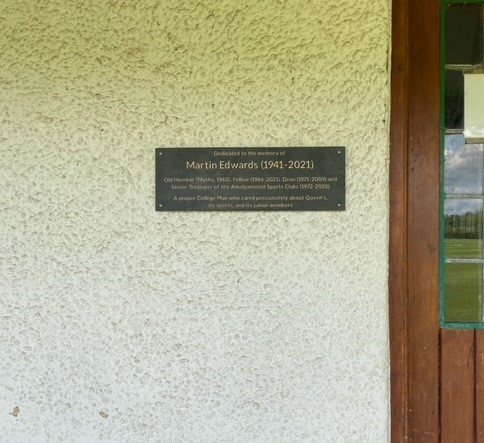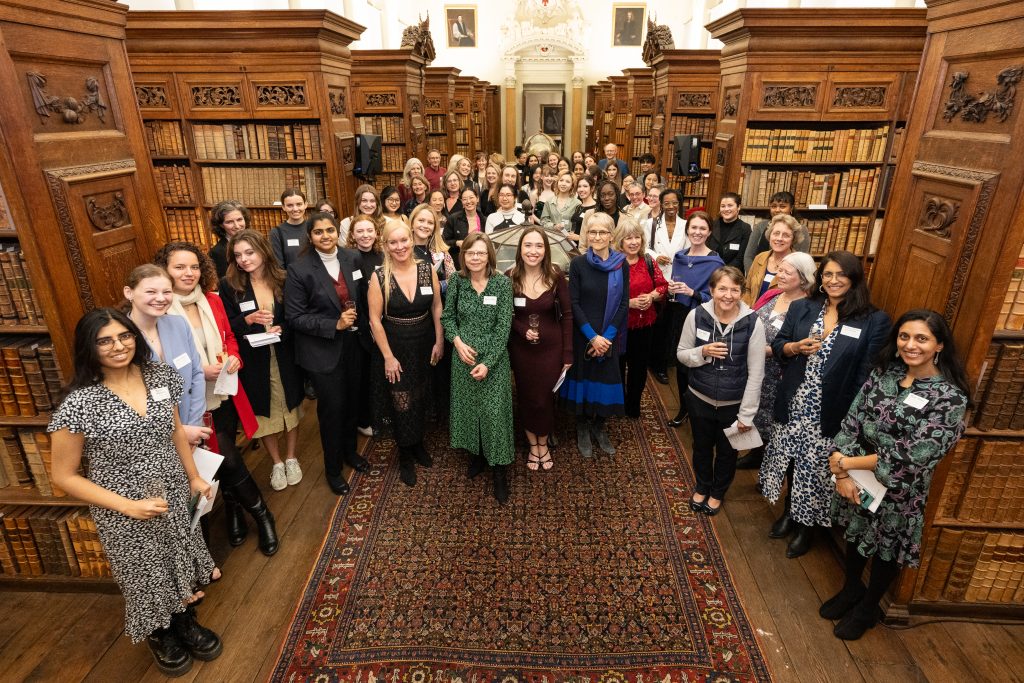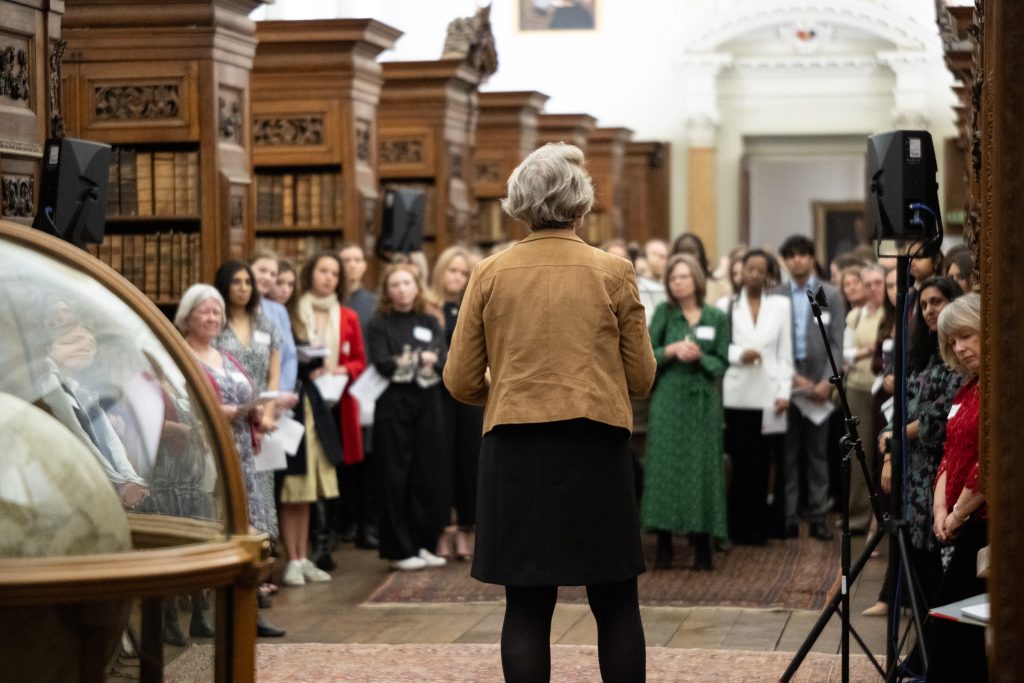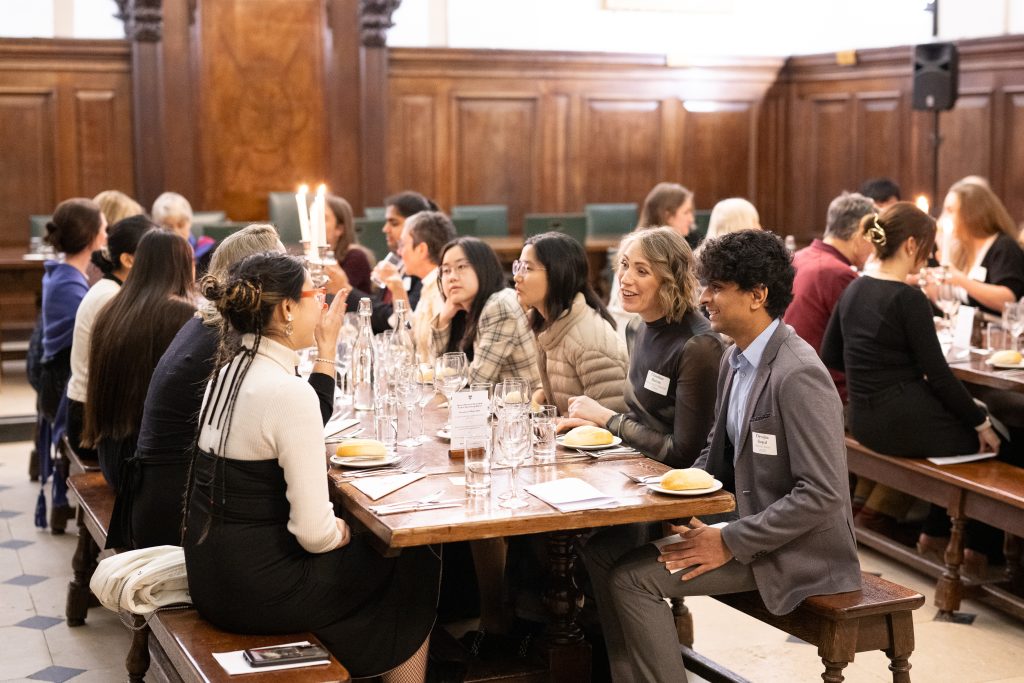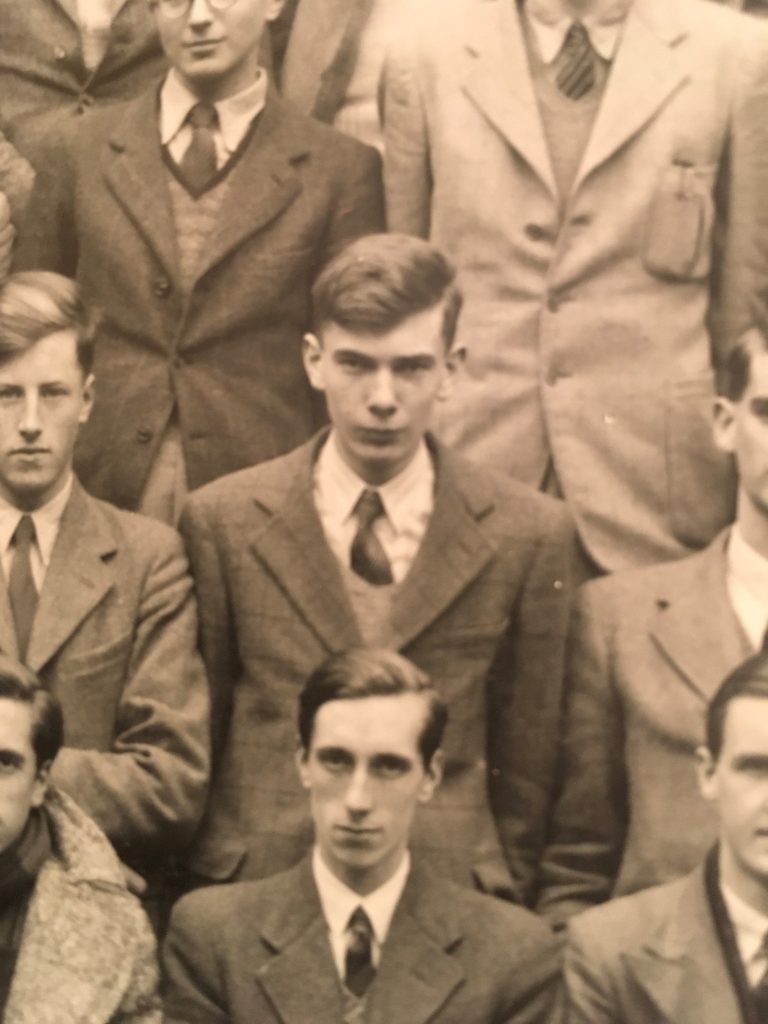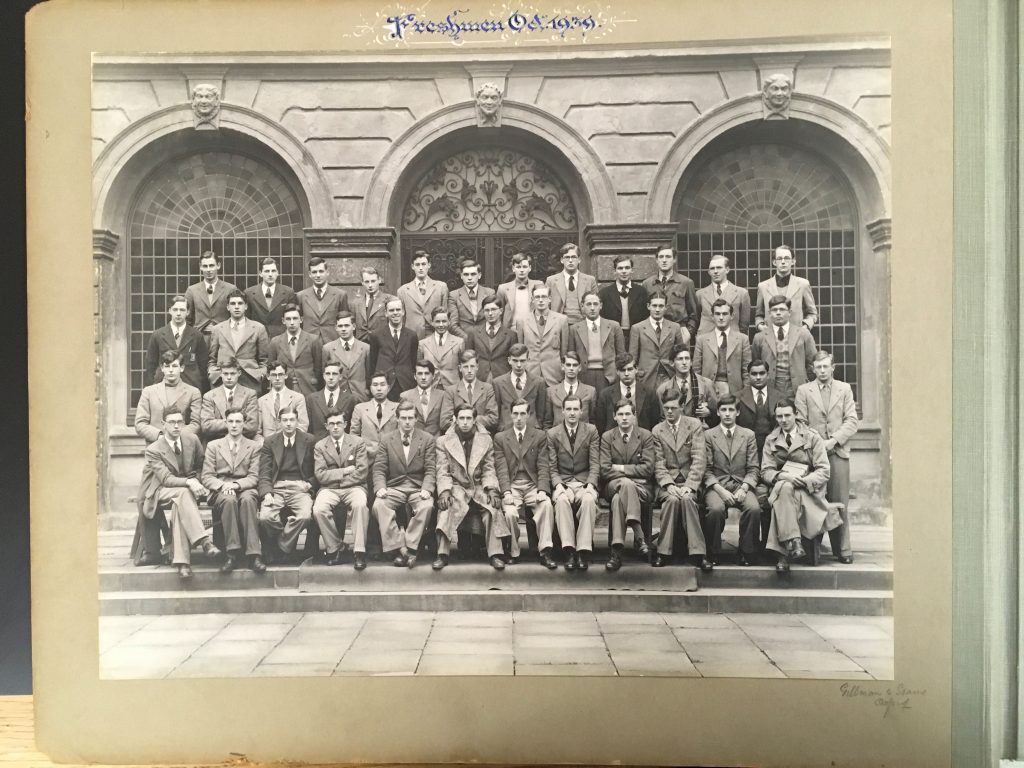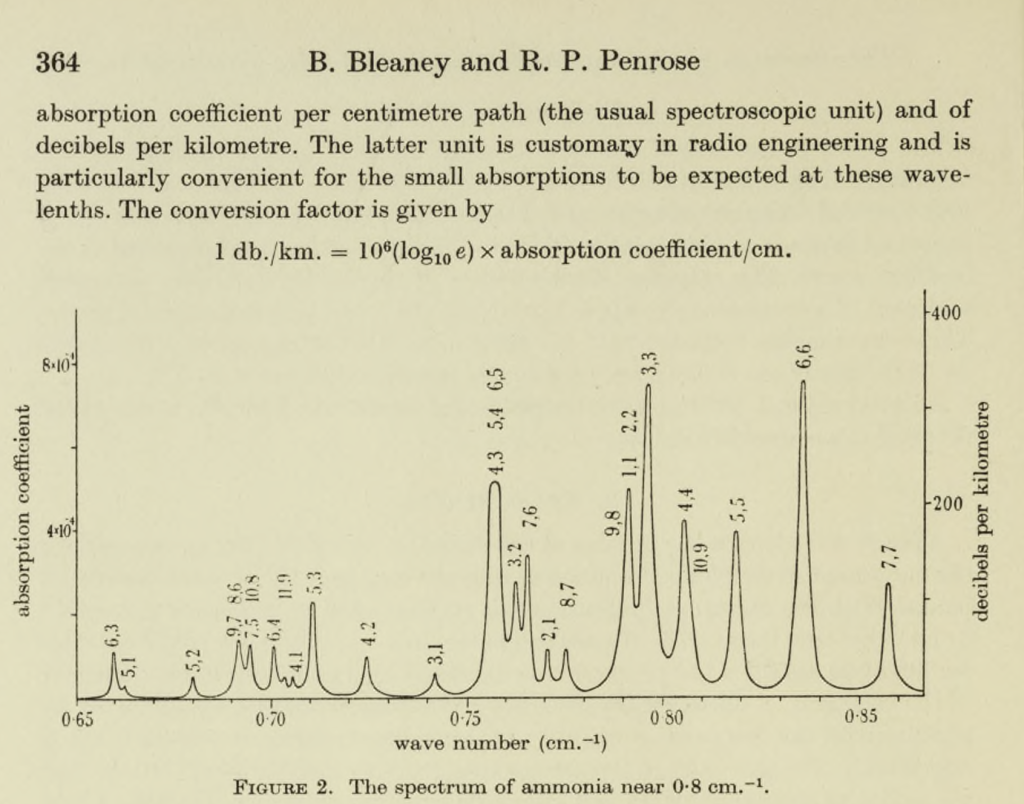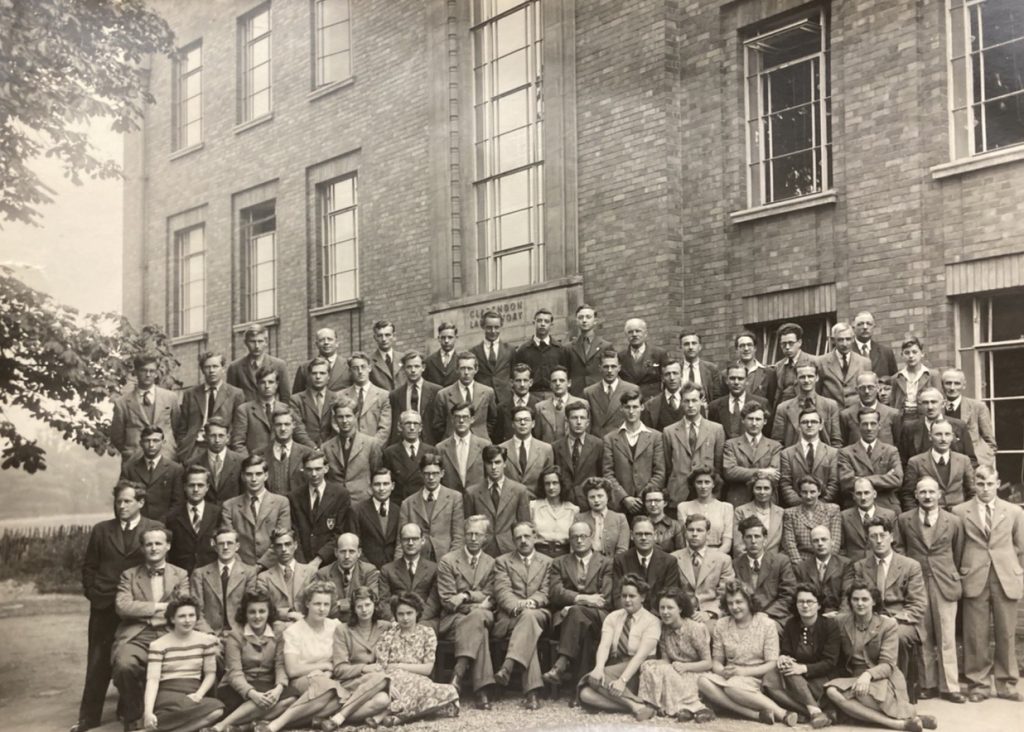Interview with artist and linguist Susan Diab (Modern Languages, 1982)
Your work spans various media. How do you decide which medium best conveys a particular concept or message?
Works find their way to my mind’s eye via different routes. Sometimes a piece announces itself fully formed and then I enjoy the exploratory process of figuring out how to bring it into the world and which materials would suit it best. Found objects often play a key role in my work, sometimes suggesting an entire direction based on their appearance or feel. Other times a word or phrase keeps playing in my head until it starts asking to be let out in physical form. However a piece starts, the choice of media follows depending on what is required to externalise it. I often work with a range of materials for one piece so I never know in advance what I will be learning about next, which keeps the process exciting and surprising. I love the practical challenge of figuring out how to combine materials that may initially seem incompatible. For the commission Palimpself in 2024, to make new work in response to Annie Ernaux’s writing, I identified recurring objects which she mentions, such as china ornaments, that seem to hold talismanic qualities. I then used these as a springboard for new sculptural pieces that reflect the strongly sensed physical reality of the world, in French ‘le concret’, which Ernaux creates in her works.
Your projects often respond to specific contexts and events. Could you elaborate on how current events or specific locations have shaped your recent works?
My work is often occasion-specific, which means it emerges in response to a particular context, time, or event. I find that situational constraints help focus the work and make it more grounded. Practicalities like funding can shape what is made, but they also create opportunities for meaningful collaboration and exploration. Palimpself, the commission for the University of St Andrews’ School of Modern Languages arose when I expressed interest in presenting at a conference about Ernaux. It felt serendipitous to bring together my art practice with my background in Modern Languages, something I hadn’t done before in quite this way. Over the years, I’ve also been committed to helping younger artists find ways to work beyond traditional studio settings, especially through context-based teaching and initiatives like the Artist Placement Scheme at the University of Brighton where I was Senior Lecturer in Fine Art from 1999 -2023 and am now an Honorary Research Fellow.
Transitioning from a background in Modern Languages to Fine Art is quite distinctive. How has your linguistic expertise influenced your visual art practice?
Bringing together art and languages has been both liberating and validating for me. I’ve often felt pressure to separate the intellectual from the visual and from making, but for me they have always been deeply intertwined. In 2018, I had something of an epiphany after giving a conference presentation about my art practice. I realised that the separation I had always felt between visual art and those subjects which are more traditionally academic was not a split that originated or belonged in myself but one that had been artificially though persuasively created by society’s expectations and divisions between disciplines. This divide has its roots in class divisions, the hand being associated with working-class trades and the brain with the professional classes. As the visual and the verbal are both forms of communication, developing one of these inevitably leads to skills transferable to the other. I like the space between two languages, where words are both familiar and unknown; I suppose it’s the place of trans-lation, literally, of movement from one place to another.
As the visual and the verbal are both forms of communication, developing one of these inevitably leads to skills transferable to the other.
One key piece was translating into Arabic and recording myself singing the English seaside song “Oh I Do Like to Be Beside the Seaside”, as a way of exploring identity, culture, and (mis)representation post-9/11. This piece was shown simultaneously across six galleries in Southampton and Sunderland. It did something towards healing the split within myself between art and academe at the same time as resolving some questions I had about what it means to live across cultures and languages. With Palimpself, my creative impulses were firing on all fronts when languages and art came together.
I realised that the separation I had always felt between visual art and those subjects which are more traditionally academic was not a split that originated or belonged in myself.
What first drew you to Annie Ernaux’s work, and how has her autobiographical style influenced your own artistic practice?
I only discovered Ernaux in autumn 2023, but I was immediately struck by her concision, honesty and clarity. Her writing resonated with my previous work using autoethnographic methods, drawing on one’s own experience to create while placing it in a broader socio-political context. In 2018, I devised a show called Autoethnos: Stories from the Self, in which I aimed to express autobiography visually rather than textually. With Palimpself, I immersed myself in Ernaux’s writing and began developing visual responses to her layered descriptions of memory and time. Her idea of the “palimpsest sensation”—the co-existence of past and present in lived experience—guided much of my process.
In working with Ernaux’s texts, how do you navigate the act of translation — both linguistically and visually — in your artwork?
Visual interpretation allows more freedom than literary translation. I don’t aim to illustrate a specific passage but instead enter into a visual dialogue with the text. My process involves layering, projection, drawing, and combining analogue and digital methods until something cohesive emerges. In the studio, I might layer old family photographs with felt-pen drawings on acetate, then project and draw from these again. Throughout the process of the commission, I had in mind the word ‘illustration’ because if the visual works I made are not translations as such, they cannot be called illustrations either. To me, illustration is a distinct and admirable art form. As an art student, I was dismayed by how the term ‘illustrative’ was often used pejoratively implying a work was weak or derivative. We were taught that sculpture shouldn’t illustrate ideas but possess its own purpose and visual language. Coming from a background in literary studies, I was especially attuned to, and fascinated by, how ‘illustration’ was used dismissively, given my enduring interest in the interplay between the verbal and the visual.
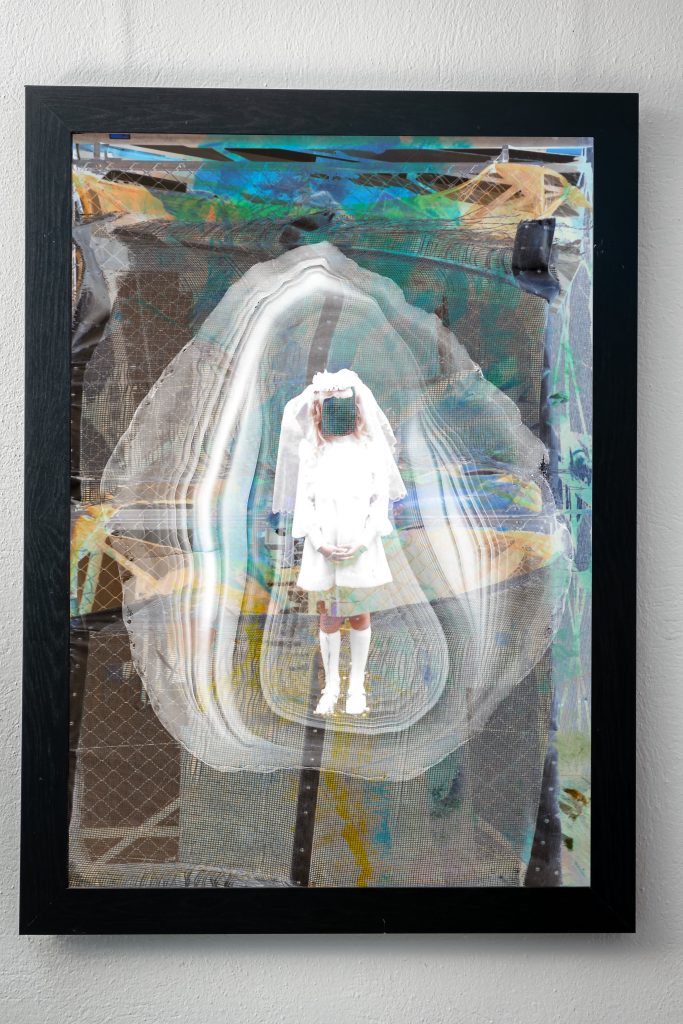
Do you see your engagement with Ernaux as a form of collaboration across mediums and time? If so, how do you reflect that dialogue in your visual responses?
Yes, it felt like a deeply personal and ongoing dialogue with Ernaux and her work. I wrote her a letter which I sent together with a folio of images of the work from Palimpself. Creating this for her, like the commission itself, felt like an act of love. Her openness and commitment to truth in her writing inspired me to create work that was equally open-ended and emotionally resonant. I was understandably overjoyed when she replied in a handwritten letter to say that reading about the process of immersing myself in her books and then creating new artworks had moved her deeply. She goes on to say that she had immersed herself in the images I made and experienced impressions and memories from doing so. She totally understood that the works did not bear a direct relation to any of her texts in particular but that they had arisen from my readings overall. The support of renowned Ernaux scholars Dr Élise Hugueny-Léger and Dr Fabien Arribert-Narce during the process of making my work was invaluable. We had monthly meetings throughout the commission, which were like the best kind of tutorial support any artist could hope for.
Creating this for her, like the commission itself, felt like an act of love.
How do you consider the audience’s understanding of French when creating work based on Ernaux’s writing?
I was aware that not all viewers would understand French, but I didn’t want to erase its presence. Many of the works incorporate references to French words or play with puns in their titles. To help bridge this, I created a glossary of English and French terms, which was made available in the exhibition. A central piece, Ostraka, is a wooden box containing ceramic sherds with key Ernaux themes written in French on one side and in English on the other. I devised this piece specifically as a didactic tool to introduce these main themes and also for the terracotta fragments within the piece to act as a ‘revision’ or translation set for viewers to interact with. In an accompanying text panel I invited visitors to the exhibition to handle the sherds, creating an interactive way to explore language and meaning.
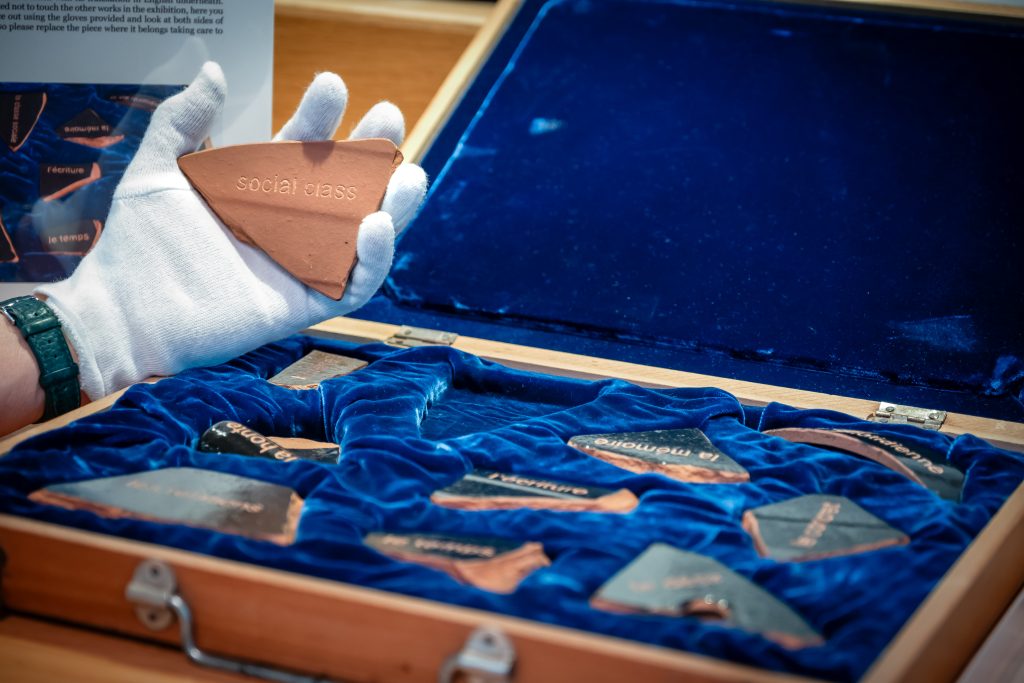
What did you enjoy most about your time as a student at Queen’s?
I loved the depth and rigour of the teaching by tutors who were outstanding in their field. I especially remember studying Medieval German with Professor Nigel Palmer: he was a wonderful tutor, kind and generous, and so knowledgeable. I was so immersed in the material I skipped a holiday one year just to read the Nibelungenlied in full and I still have my annotated copy.
What was your favourite place in Oxford?
Without hesitation I can say that the Upper Library at Queen’s was my favourite place: sitting and reading within its breath-taking architecture at one of the desks surrounded by its handsome, large, leather-bound old volumes. How lucky was I!
You returned to Oxford for an artistic residence at the Pitt Rivers Museum from 2019-2022. While there, you collaborated with Oxford University’s Medical Research Council’s Brain Network Dynamics Unit and Parkinson’s UK. How did your artistic vision contribute to this interdisciplinary project?
This project, In Control by Design, was part of a wider initiative exploring how wearable devices could help those living with Parkinson’s. I worked closely with scientists, curators and members of Parkinson’s UK, including my husband, a museum curator, who was diagnosed with the condition in 2015. I gathered materials—old clothing accessories, toys, tools—and created an environment for playful experimentation. My role was to translate people’s needs and ideas into potential wearable designs, drawing on historical artefacts from the museum.
When a person is first diagnosed with Parkinson’s, the main message they are given at that initial appointment is ‘there is no cure’ which feels like a death sentence. Because most people at that stage don’t know much, if anything, about the condition the outlook seems pretty bleak. It would be much more constructive and helpful to be told: “although there is currently no cure for Parkinson’s, most people learn to adapt and lead full and active lives with it”. So, what I loved about this project was that its focus was on improving quality of life for people with Parkinson’s. The whole experience helped reframe how we think about illness and adaptability and brought joy and connection to everyone involved.
Can you recommend a book?
L’autre fille (translates as The Other Daughter/Girl, not yet available in English translation but will be soon) by Annie Ernaux. It’s a letter to the sister she never knew, and is so deeply moving and spiritual that it opens up many new spaces within which to think and feel.
Links
- ‘Palimpself’ exhibition on the official Annie Ernaux website: https://www.annie-ernaux.org/palimpself/
- Exhibition blog: https://www.susandiab.com/?p=963
- University of Brighton research pages: https://research.brighton.ac.uk/en/persons/susan-diab
- An online exhibition catalogue for ‘Palimpself’, including essays by Dr Élise Hugueny-Léger (School of Modern Languages, University of St Andrews) and Dr Fabien Arribert-Narce (School of Literatures, Languages and Cultures, University of Edinburgh) will be available to download from Autumn 2025.
Discussions are underway to put on the exhibition in Oxford in 2026. Susan can be contacted about her work via the contact form on her website, listed above.
